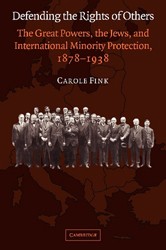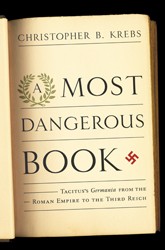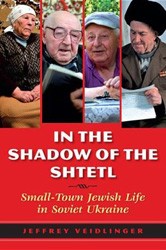By
– November 15, 2011
Jewish legal and political thought developed in conditions of exile where, until 1948, Jews had neither a state of their own nor an unchallenged citizenship in any other. In this remarkable and highly readable book, Wisse provides a new way of thinking about the Jewish relationship to power. She disputes the idea that Jews in the Diaspora existed in a political vacuum. The absence of full sovereignty never meant that Jews lacked political instincts, institutions, or leaders. Rather, Jewish political traditions were grounded in their covenantal relationship with God and a body of legal interpretation that teased out the reciprocal obligations of the ruler and the ruled. For much of Jewish history, the rabbis taught that the fate of the Jews depended not on their ability to wield political power, but rather on their ability to satisfy God of their uprightness. They linked the nation’s potency to its moral strength. There is a great deal to learn in this book about the Jewish experience of sustaining a national identity and a system of law, economics, and authority without territory, sovereignty, citizenship, or most of the time, real political power. Their atypical political patterns, developed as adjustments to the Diaspora, equipped Jews to live as citizens and as political actors with some degree of initiative and influence.
Medieval and early modern communal life, although always segregated from the non-Jewish majority, still afforded Jews experience in self-government and association. It prepared them for democratic responsibility— for being as concerned for others as they are for their own. In the Kahal, the semiautonomous Jewish community in exile, Jews were responsible for all aspects of their wellbeing. Wisse posits that Jewish creativity expressed itself in these political accommodations to the Diaspora as much as in the areas of religion, philosophy, folkways, language, and culture. Jews interacted with other peoples and rulers and impacted history. She also shows how the politics of Jews stimulated the politics of anti-Jews. They were, of course, not deserving of the aggression leveled against them but were, nevertheless, involved in a complicated web of dependence and influence. The insights offered in this brilliant analysis provide a context for the challenges currently facing the State of Israel and the Jewish people. Jews and Power is certainly a book for our times— courageous, honest, and cogent.
Medieval and early modern communal life, although always segregated from the non-Jewish majority, still afforded Jews experience in self-government and association. It prepared them for democratic responsibility— for being as concerned for others as they are for their own. In the Kahal, the semiautonomous Jewish community in exile, Jews were responsible for all aspects of their wellbeing. Wisse posits that Jewish creativity expressed itself in these political accommodations to the Diaspora as much as in the areas of religion, philosophy, folkways, language, and culture. Jews interacted with other peoples and rulers and impacted history. She also shows how the politics of Jews stimulated the politics of anti-Jews. They were, of course, not deserving of the aggression leveled against them but were, nevertheless, involved in a complicated web of dependence and influence. The insights offered in this brilliant analysis provide a context for the challenges currently facing the State of Israel and the Jewish people. Jews and Power is certainly a book for our times— courageous, honest, and cogent.
Michael N. Dobkowski is a professor of religious studies at Hobart and William Smith Colleges. He is co-editor of Genocide and the Modern Age and On the Edge of Scarcity (Syracuse University Press); author of The Tarnished Dream: The Basis of American Anti-Semitism; and co-author of The Nuclear Predicament.




